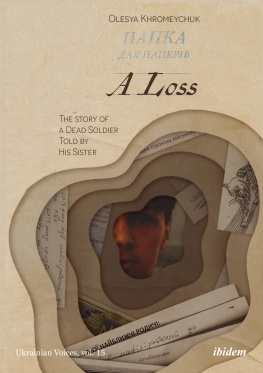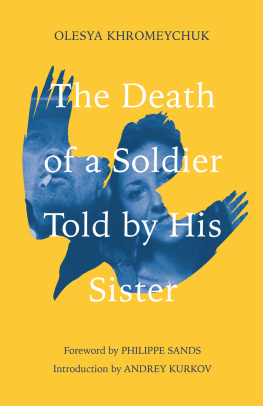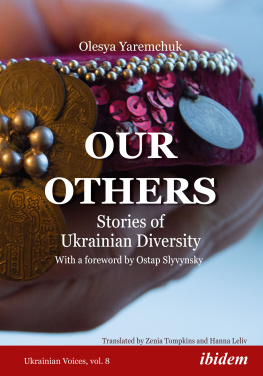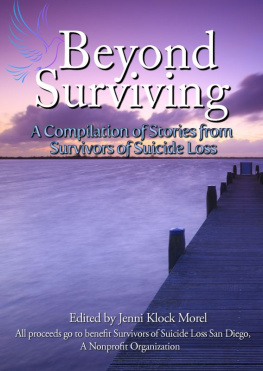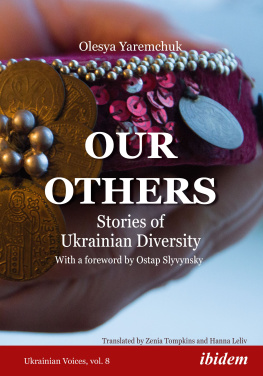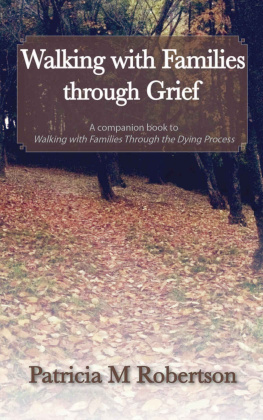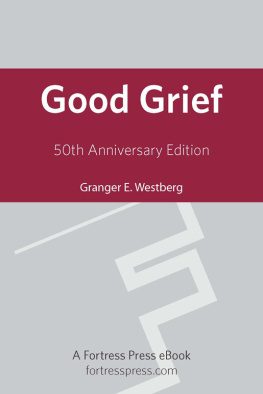ibidem Press, Stuttgart
In memory of Volodymyr Pavliv (1974-2017)
Contents
Acknowledgments
I would have preferred not to have had to write this book, to have had no subject matter to write about, to have had my brother alive rather than my book published. But since the subject matter materialized, I am lucky to have been able to commit my reflections to paper, not to submerge them in the depths of my sorrow but to lift my grief line by line, and, by doing so, make my heavy heart a little lighter. I could never have done it alone.
I cannot be grateful enough to my familymy mother Olha, father Yuriy and brother Yuranot only for letting me share these stories, but for actively encouraging me to write them down. After all, these stories do not belong to me alone; each of us might tell them differently, but they are a shared family possession. I thank my partner, Uilleam Blacker, for being there for me in the darkest moments of my grief, for listening to every first draft and reading subsequent drafts of this text attentively and sensitively.
The actors of Molodyi Teatr London, my theater companyLesya Liskevych, Liliya Romanyshyn, Iryna Sandalovych, Uilleam Blacker, Olga Malchevska, Volodymyr Glushak, Slavko Tsyhan and Fin Ross Russellallowed me to think through my trauma out loud and created a space in which I could step outside of my own story in order to regard it at some distance, for which I am very thankful. They also offered their trusted friendship and unrelenting sense of humor even at moments when laughter seemed impossible.
Im blessed with dear friends who are also fellow academics and who were willing to combine their compassion and professional judgment while reading this volume: Sasha Dovzhyk and Molly Flynn thank you! A friend who got to know this war first-handMaria Berlinskagave me the confidence to speak of it even though I was fortunate not to have experienced it myself. To the many other friends and colleagues who patiently listened to me speak about the war in general and my own loss in particular, I will forever be grateful to you for offering your time, support and ideas.
I am touched by the endorsements written for this book. Cynthia Enloe is my heroine when it comes to finding a sensitive approach to individuals experiences of political violence. I am moved by how sincerely Anna Reid cares for the welfare of Ukraine. Rory Finnin has been my mentor, colleague and friend from the very start of my academic career. The support extended by these people means more to me than I can express. I am very grateful to Andrey Kurkov for contributing the foreword to the book.
The illustrations so creatively executed by Hanna Strizh not only speak on my behalf where words escaped me, but also evoke my brothers drawings in an uncanny way. I am fortunate to have worked with an artist whose talent is matched by her sensitivity.
Three of the stories published in this volume appeared elsewhere in earlier versions: Army Boots was published by Krytyka, A Ukrainian Obituary and On the Edge of a European War, Who Gets to Defend the State were published by Open Democracy. Id like to thank the editors, Oleh Kotsyuba and Tom Rowley, for lending me their courage to deliver these texts to readers. I am grateful to Andreas Umland for his willingness to take on this manuscript and make it see the light of day.
Most of all, Id like to thank all those who made my brothers journey through the war a little more endurable, a little more humane. My gratitude extends to all who keep alive the memory of lives cut short by this war.
Foreword
Whenever I read a book about the current war in the Donbas, I get the strange impression that this war is over. These books transport the reader into the past, even if it is just yesterday. So it is with this book. I read it, empathized, recognized some of the characters and situations and a heavy, mournful calm descended on my soul. But as soon as I had finished reading, the calmness was gone. And I returned to the reality in which the war is still going on, in which it has been going on for seven years already.
The war in this book ended only for its hero, Volodya, the brother of the author, Olesya Khromeychuk. He died at the front. He has become a cipher of military statistics. He has also become a treasured memory for his relatives, friends and brothers-in-arms, and he has become this book, which would not have appeared if he had remained alive.
While reading this book, keep in mind the fact that the front line of this war is still there and, along its 270 miles, Ukrainian fighters are under regular artillery and sniper fire from pro-Russian separatists and their Russian supporters in the breakaway territories of the Donbas. The ammunition for these continued attacks arrives regularly from Russia, which also seeks to make the return of these territories impossible by giving Russian passportsover 600,000 alreadyto inhabitants of the Donbas.
With this book, the author invites the reader to walk the path that she had to travel after the news of her brother's death. This is a very personal story and, I imagine, one that was very difficult to write. But Olesya Khromeychuk could not help writing this book, and it is important for people to read it. Her history, the history of her family reflects the history of tens of thousands of Ukrainian families. It reflects the history of modern Ukraine with its problems, hopes, victories and losses. Today, when news about what is happening in Ukraine gets less and less attention in the pages of European newspapers, this book will become an important source of information about the war and, perhaps more importantly, about the impact of the war on ordinary Ukrainians. It does not focus on numbers and dates, but on human experience in a country that has found itself in a state of war.
Andrey Kurkov
Preface
Volodymyr Pavliv, my brother, died on the front line in eastern Ukraine in 2017. He served in the Ukrainian Armed Forces for almost two years before he was killed by shrapnel near Popasna, Luhansk region. He was 42 when he died.
Volodyathat is how he was always known in our familywas the eldest of three children. He was followed by Yura, the middle child, and me, the baby of the family. There was a four-and-a-half-year difference between each of us. This meant that Yura was close to both Volodya and me, having us on either side of him. Both Yura and I played music and did theater, while Volodya was into art and sports. If Yura was the approachable brother, in my eyes, Volodya was always unreachably older, wiser and taller. Now that he is dead, the nine-year gap that existed between us is shortening daily.
I will never be as tall or, perhaps, as wise as he was but, if Im lucky, I will reach and surpass the age at which he died. I guess, eventually, in a strange sort of way, he will become my little brother. Although it would be fair to say that I often felt like his big sister even when he was alive. It was me who looked out for him, worried about him, and tried to make sure he was okay. He never asked for any of it. I chose to be his little big sister. Perhaps he was being my big brother, but in ways that were not always obvious to me.
When he was younger, without much effort, Volodya looked as if he had just walked off the cover of some teen magazine. Later on, he sported the look of a wandering artist, a man whod had a few battles with life. And it was only in his final years that I struggled to recognize him: the sharp features of his face became even sharper when framed by a helmet or a bandana, the usual long light-brown hair was replaced by a short crop, the arms became more muscly, the skin more tanned, the green of his eyes became darker against the khaki that always surrounded him. When I look at the photos of him from that period, I have to try very hard to discern a familiar face in them.

